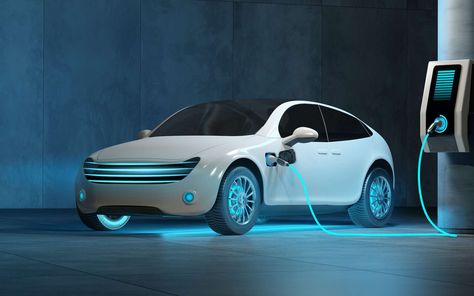The shift towards electric vehicle (EVs) has gained significant momentum in recent years as more people look for sustainable, cost-effective, and efficient alternatives to traditional gas-powered cars. With advancements in technology and growing environmental concerns, electric vehicles are becoming an increasingly popular choice for drivers. Here are seven key benefits of driving an electric vehicle.
1. Environmental Impact
One of the most significant benefits of driving an electric vehicle is its positive impact on the environment. EVs produce zero tailpipe emissions, meaning they don’t contribute to air pollution, unlike traditional internal combustion engine vehicles. This reduction in harmful pollutants such as carbon dioxide, nitrogen oxides, and particulate matter helps improve air quality, especially in urban areas.
- Lower Carbon Footprint: When charged with renewable energy sources like solar or wind power, EVs can have an even smaller carbon footprint, making them an environmentally friendly choice.
2. Lower Operating Costs
Electric vehicles tend to have lower operating costs compared to conventional cars. Charging an EV is significantly cheaper than filling up a gas tank. The cost per mile to drive an electric car is much lower because electricity is less expensive than gasoline. Additionally, EVs have fewer moving parts, meaning they require less maintenance.
- Fewer Maintenance Requirements: Electric vehicles don’t require oil changes, and they generally have fewer mechanical issues because there are no exhaust systems, radiators, or timing belts to worry about.
3. Tax Incentives and Rebates
Many governments offer financial incentives for purchasing electric vehicles, such as tax credits, rebates, and grants. These incentives can help offset the initial higher purchase price of an EV, making it more affordable. In some regions, there are also exemptions from registration fees or road taxes, further reducing the overall cost of ownership.
- Government Programs: Various federal, state, and local government programs provide incentives, including tax breaks and discounted charging equipment, encouraging the transition to electric vehicles.
4. Quiet and Smooth Driving Experience
Electric vehicles provide a quieter and smoother ride compared to traditional gas-powered cars. The absence of an internal combustion engine means there’s less engine noise and vibrations, making the driving experience more pleasant and relaxing. This is particularly noticeable at lower speeds and in stop-and-go traffic.
- Less Road Noise: Since EVs don’t rely on combustion, the cabin remains quieter, enhancing overall comfort, particularly on long drives.
5. Energy Efficiency
Electric vehicles are significantly more energy-efficient than gas-powered cars. On average, EVs convert over 85% of electrical energy from the grid to power the wheels, whereas conventional vehicles only convert around 20% of energy from gasoline into motion. This high efficiency translates into fewer energy resources needed for the same distance traveled.
- Better Fuel Efficiency: An EV consumes less energy per mile, which makes it more economical and reduces dependency on fossil fuels.
6. Improved Performance
Electric vehicles often deliver superior acceleration and overall performance. Since electric motors can produce maximum torque from a standstill, EVs offer quick and responsive acceleration, often outperforming conventional cars in this area. This smooth and instant power delivery provides a dynamic driving experience, particularly on highways and urban roads.
- Instant Torque: EVs offer better handling and smoother acceleration with more control over speed, contributing to a thrilling driving experience.
7. Reduced Dependence on Fossil Fuels
By driving an electric vehicle, you are helping reduce global dependence on oil and fossil fuels. As the electricity grid becomes increasingly powered by renewable energy sources, EVs will become even more sustainable. This shift to cleaner energy can help mitigate the geopolitical and economic challenges related to oil dependence and contribute to global energy security.
- Energy Independence: With the growing adoption of renewable energy sources, EVs can be powered using sustainable and local resources, reducing reliance on imported oil.
Conclusion
The benefits of driving an electric vehicle extend far beyond just fuel savings. From reducing your carbon footprint to enjoying a quieter, more efficient ride, EVs provide a host of advantages that make them an attractive choice for environmentally conscious and budget-minded drivers. As technology continues to advance, the appeal of electric vehicles will only grow, making them an essential part of the future of transportation.


